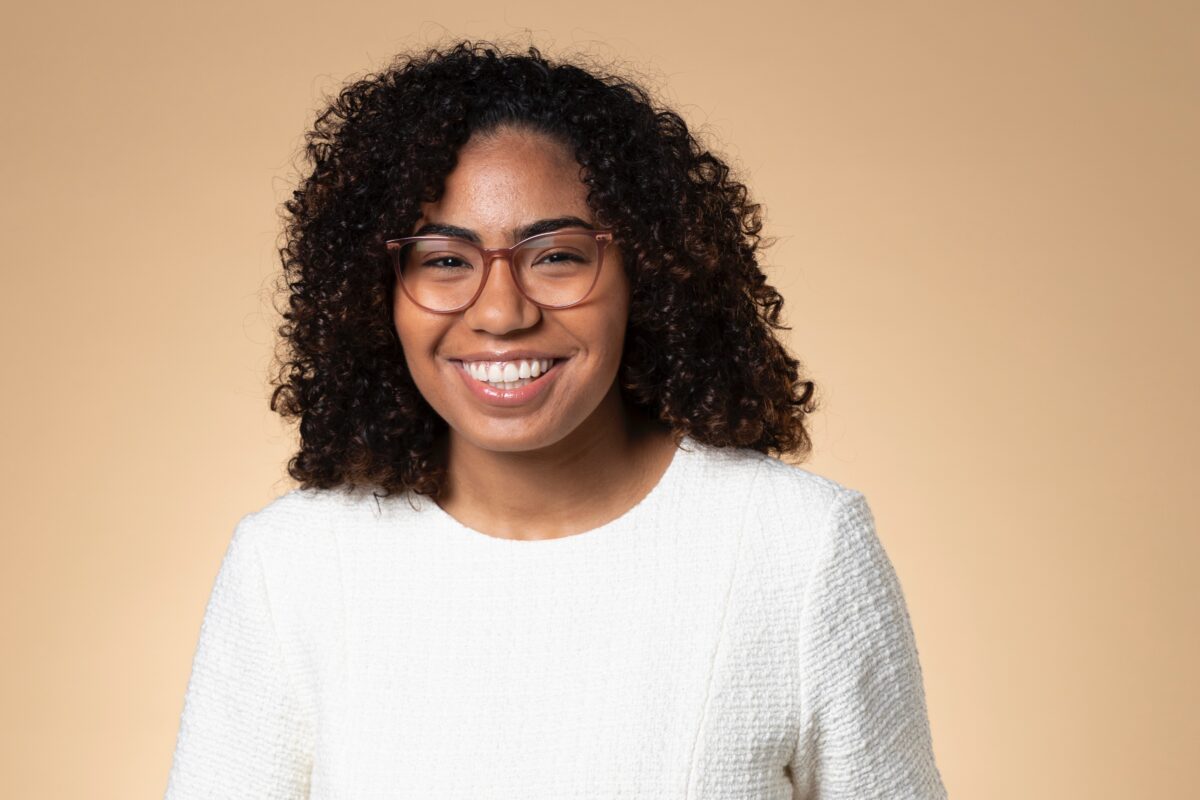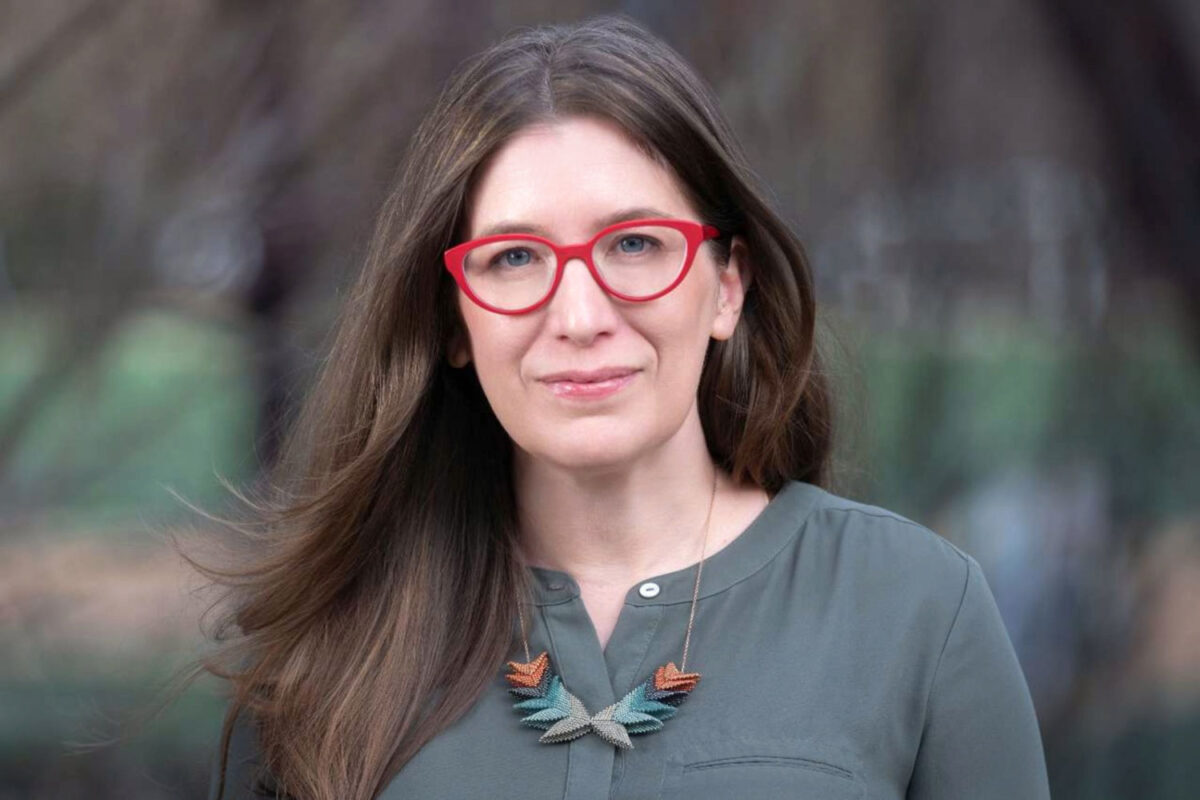Starting college is the first big adventure for many young adults, as they leave behind family and friends, neighborhoods and communities. University of Washington Bothell alumna Dessirée Ortaç, however, had already experienced those kinds of life changes long before she arrived on campus.
Born in the Dominican Republic, Ortaç has also lived in Turkey, Uzbekistan, Azerbaijan and, now, the United States. Being in so many different places has given her a wide variety of insights into different cultures and countries. But most impactful to her are the disparities she saw in health care access, cost and quality.
It’s a world perspective that has inspired her to become a physician who can work toward “closing the gap in access and quality of health care that patients of underrepresented minorities receive,” she said.
In this academic pursuit, Ortaç, who graduated in June with a degree in Biology and a minor in Diversity Studies, received a number of scholarships, conducted research at the UW’s Institute for Stem Cell & Regenerative Medicine and served on its Diversity, Equity and Inclusion Committee.
Ortaç was also named one of the UW’s 2023 Husky 100 honorees in recognition of her accomplishments.
Her dedication and drive
Each year, the University recognizes 100 undergraduate and graduate students from the Bothell, Seattle and Tacoma campuses who are making the most of their time at the University. The recipients actively connect what happens inside and outside of the classroom, applying what they learn to make a difference on campus and in community. Ortaç is one of eight students from UW Bothell recognized this last academic year.
Every honoree’s educational journey began differently, and for Ortaç it was her decision to declare a major in Biology. Through that program, she met Dr. Bryan White, the teaching professor in the School of STEM who facilitates the UW Bothell fellowship at ISCRM, a multi-lab research institute that is affiliated with the Fred Hutchinson Cancer Center and Seattle Children’s Hospital.
White noticed Ortaç’s genuine interest and excitement in the field, and supported her successful fellowship application for sophomore year. As soon as she arrived at the lab, she immersed herself in the work, learning as much as possible from everyone she met.
Her dedication and drive were again recognized by colleagues and helped earn her a number of prestigious awards, including a Mary Gates Research Fellowship, a Washington Research Foundation Fellowship and a Thomas Sedlock Icon Scholarship.
In part because of these endorsements, Ortaç was also able to continue in the lab even after her initial fellowship ended. She chose to conduct a study on heart disease to learn more about how the heart repairs itself following an injury.
At the heart of research
“A key reason driving the high mortality of heart disease is that the heart is unable to regenerate any muscle that is lost due to injuries like heart attacks,” Ortaç explained in an abstract about her research project. “Investigating MBNL1’s Role in Promoting Cardiomyocyte Maturation. “In the past decade, scientists have attempted to address this issue by using stem cell-derived cardiomyocytes (iPSC-CMs) to replace lost heart muscle.
“A key limitation preventing the use of this therapy in humans has been that in comparison to adult cardiomyocytes, stem cell derived cardiomyocytes remain relatively immature,” she wrote. “When transplanted into an adult heart, these immature cells cause several complications. In order to further develop this technology and translate it to patients, we need to identify regulators of cardiomyocyte maturation.”
From this year-long study, Ortaç found that there is in fact a correlation between iPCS-derived cardiomyocyte maturity and MBLN1 expression. She presented her findings at the UW’s Undergraduate Research Symposium in May, noting that it was “a great opportunity to practice my research communication skills as well as share my work with the community.
“Still,” she added, “more work is needed to determine exactly how MBLN1 is impacting the maturity of stem cell derived cardiomyocytes.”
In endorsing Ortaç for the Husky 100 recognition, Dr. Jennifer Davis, ISCRM associate director, wrote, “In the lab, Dessiree has far exceeded expectations. She came to us with absolutely no laboratory experience but quickly became proficient in a cadre of molecular techniques with a depth of understanding that equals a senior graduate student.”
Dessirée came to us with absolutely no laboratory experience but quickly became proficient in a cadre of molecular techniques with a depth of understanding that equals a senior graduate student.
Dr. Jennifer Davis, associate director, Institute for Stem Cell & Regenerative Medicine
For equal opportunity
In addition to conducting research, Ortaç put her Diversity Studies minor to use and served on ISCRM’s Diversity, Equity and Inclusion Committee, reviewing applications for the Research Experiences for Undergraduates program.
She sought out this position specifically because the REU program is one of few that is open to international students. Knowing firsthand how challenging it can be to gain research experience with this status, she wanted to make the opportunity as accessible as possible.
“I remember how badly I wanted to conduct research at ISCRM and how shocked I was to learn that they took international students because most research programs don’t,” Ortaç recalled. “The initial ISCRM fellowship was really competitive, and I was nervous because I didn’t have any research experience.”
One of her primary goals was to make sure international students are not overlooked for their lack of experience, knowing that most often this is due to the lack of opportunity, not interest.
“Having been an international student, I know how frustrating it is to not be eligible for most internships and other professional development opportunities,” she said. “It was really rewarding to ensure international students were being given a fair chance.”
With a forward focus
Ortaç is now looking forward to submitting her medical school application. She will spend a gap year doing a research project of her own in the ISCRM lab, translating in vivo findings to in vitro work.
As for her undergraduate career at UW Bothell, she said it has been extremely rewarding.
“I am so grateful for all the opportunities I was able to take advantage of,” she said. “Receiving the Husky 100 award is humbling and such an honor. This recognition is so special and serves as a reminder that I did make the most of my time as a Husky.”




